Top 10: 4K UHDs of 2022
- High-Def Watch Staff

- Jan 3, 2023
- 19 min read
Updated: Jan 17, 2023
TRUE 4K MASTERING / HDR FRAME SHOTS
THE LIST of movies is the very best in 4K viewing from disc or streaming. The criteria required the original source to be mastered in 4K and nothing less.
No upconversion from 2K to 4K on this list. Paramount Pictures and Warner Bros. Home Entertainment dominate the Top 10, while the Kino Lorber Studio Classics series came in a close third.
(Click an image to scroll the larger versions)
Tom Cruise stars as one of the U.S. Navy’s top aviators Pete “Maverick” Mitchell.
NO. 1 - “TOP GUN: MAVERICK”
4K Ultra HD, Blu-ray, Digital copy; 2022, PG-13 for sequences of intense action and some strong profanity; streaming via Amazon Prime Video (4K), Apple TV (4K), Paramount + (4K), Vudu (4K), YouTube (4K)
Best extra: “Breaking New Ground: Filming “Top Gun: Maverick” featurette
THE FINAL NUMBERS are in and Tom Cruise’s “Top Gun: Maverick” champions James Cameron’s “Avatar 2” in the race for the top Hollywood-grossing film of 2022. “Maverick” hit $1.488 billion worldwide after seven months, while the fast-tracked “Avatar 2” is at $1.193 billion in just 17 days.
The sequel to the hit 1986 film “Top Gun” had its share of theatrical false starts. Initially scheduled for a July 2019 release, production issues delayed it to April 2020. Then COVID-19 pushed the premiere to June, then December 2020, and we all know how that went. Paramount next aimed for July 2, 2021, as Cruise and Paramount stood by their guns to only release the action-packed film in theaters. “We are committed to the theatrical experience and our exhibition partners, and want to stress that we are confident that, when the time comes, audiences everywhere will once again enjoy the singular joy of seeing Paramount films on the big screen,” Mark Viance, Paramount president of international theatrical distribution, announced. Well, July also came and went, and Paramount declared November 19, 2021, as the next premiere date.
“Maverick” finally landed in theaters worldwide in May 2022, quickly becoming a global hit – making it Cruise's biggest opening ever. Audiences were desperate for some old-fashioned action, BIG visuals and sound, and the chance to shed a few tears. Top critics fell all over each other, giving it four and five stars for a 99 percent rating on Rotten Tomatoes, with the audience in agreement. The majority of moviegoers were over 35.
“Top Gun: Maverick” is clearly a legacy sequel bringing the hotshot pilot back from semi-retirement as a test pilot to fly the experimental Darkstar jet past Mach 10, then ordered back to Top Gun academy for a special mission.
Director Joseph Kosinski (“Oblivion,” “Only the Brave”) and Cruise worked with the U.S. Navy and Sony to develop super small 6K IMAX-quality cameras. Six cameras were mounted inside the cockpit of the F-18 to withstand 7.5 G-force and 550 knots in order to capture the actors. Real Navy aviators were at the controls in the front seat doing the REAL stunts. Cruise spent decades studying aerial photography, camera mounts, and camera angles knowing it would be useful one day. His goal was to completely immerse the audience into the pilot's environment – “In a very cinematic way,” Cruise said. “I’m not going to make this film unless we can accomplish that.” The end results showcase stunning air-to-air photography from the CineJet, with a camera mounted on the nose and ground-to-air cameras. Cruise was also catapulted off the aircraft carrier six times – something he'd never accomplished in the original “Top Gun.”
All of the footage was mastered in beautiful 4K, with the aspect ratio recreating the theatrical experience bouncing between super widescreen 2.39:1 to 1.90:1 for the IMAX scenes. Clarity is unmatched from start to finish, with HDR10 and Dolby Vision grading achieving maximum color, and contrast levels. HDR10 highlights peak at 617 nits and averages at 496 nits.
The eight-channel Dolby Atmos soundtrack doesn’t disappoint, delivering an intense bass response, and effects from the front to back, and height speakers. As always, the music track is top-notch including a number of classics from the original such as Kenny Loggins’ “Danger Zone,” and a cover of “Great Balls of Fire.” Lady Gaga’s “Hold My Hand” is bound to be nominated for Best Song at the upcoming Oscars. Paramount is pushing hard to get “Top Gun: Maverick” nominated for Best Picture, and Tom Cruise as Best Actor, which may be a stretch. Even so, it should receive at least six or seven nods, mostly in technical categories. The announcement for the 95th Academy Awards will be on January 24.
— Bill Kelley III, High-Def Watch producer

John Travolta and Samuel L Jackson play hitmen Vincent Vega and Jules Winnfield in Quentin Tarantino’s 1990s crime classic.
NO. 2 - “PULP FICTION”
4K Ultra HD, Blu-ray & Digital copy; 1994, R for strong violence and drug use, pervasive strong profanity and some sexuality; streaming via Amazon Prime (4K), Apple TV (4K), Vudu (4K), YouTube (4K)
Best extra: “Not the Usual Mindless Boring getting to Know you Chit Chat” featurette
JUST as COVID-19 blanketed the globe in the spring of 2020, ViacomCBS (Paramount Pictures) zeroed in on its acquisition of Miramax and its library of 700-plus titles including Quentin Tarantino’s crime classic “Pulp Fiction,” as well as Best Picture Oscar winners “Shakespeare in Love” (1998), “Chicago” (2002) and “No Country for Old Men” (2007). The small independent studio had been launched by brothers Bob and Harvey Weinstein in 1979 and previously owned by Disney in 1993, and recently owned by Qatar-based BeIN Media Group.
Once the $375 million deal was finalized, Paramount pushed “Pulp Fiction” into the 4K restoration pipeline. It's suspected that Miramax was already working on the project. Whatever the case, the original 35mm camera negative was scanned in 4K (2.35:1 aspect ratio) and the full restoration was handled with digital cleanup and new HDR10 and Dolby Vision grading. Overall, it’s a striking presentation with excellent contrast levels – especially super bright highlights and shadow detail. The HDR10 peak brightness hits 1000 nits, averaging 184 nits. Colors are well-saturated, with natural facial toning throughout.
Surprisingly, the natural film grain was kept intact, with only a slight reduction, but still maintaining a full cinematic feel. Paramount has been known for excess grain management applying Digital Noise Reduction (DNR) on a handful of its 4K Ultra HD releases including “Grease” (1978), “Trains, Planes & Automobiles” (1987), “Saturday Night Fever” (1977) and a lesser amount on “Forrest Gump” (1994).
The six-channel DTS-HD master soundtrack was ported over from the previous Blu-ray and still provides a wide open soundstage from front to the back, with its outstanding hit parade soundtrack. It begins with the electric guitar-driven “Misirlou” with Dick Dale & His Del-Tones, “Jungle Boogie” from Kool & The Gang, “Son of a Preacher Man” with Dusty Springfield, “Let’s Stay Together” from Al Green, “You Never Can Tell” from Chuck Berry, and Urge Overkill’s cover of Neil Diamond’s “Girl, You’ll Be a Woman Soon.”
When “Pulp Fiction” premiered at the annual Cannes Film Festival, winning the top Palme d’Or prize, famed critic Roger Ebert was there. Eight years later, he added “Pulp” to his “Great Movies” list, calling it the “most influential film of the decade.” He went on to say, “Its greatness comes from its marriage of vividly original characters, with a series of vivid and half-fanciful events and dialogue. The dialogue is the foundation of everything else.”
Tarantino won the Oscar for Best Original Screenplay, while it received six other Oscar nods including Best Picture, Director, Film Editing, and for the performances by John Travolta as hit-man Vincent, Samuel L. Jackson as hit-man Jules, and Uma Thurman as Mia Wallace, the wife of kingpin Marsellus Wallace played by Ving Rhames. The twist-dance routine between Mia and Vincent at Jackrabbit Slim’s has always been a crowd-pleaser. So has Vincent's life-giving shot of adrenaline in her heart after she accidentally overdosed. We can’t forget when Vincent’s gun carelessly goes off and kills Marvin in the backseat – after Jules had given the young African-American a second chance.
— BKIII

Austin Butler, practically an unknown got the role of Elvis Presley from his emotional audition tape he made himself singing “Unchained Melody.”
NO. 3 - “ELVIS”
4K Ultra HD, Blu-ray, Digital copy; 1981, PG for violence and profanity; streaming via Amazon Prime Video, Apple TV (4K), Vudu (4K), YouTube (4K)
Best extra: The 22-minute“Bigger Than Life: The Story of Elvis” featurette
THIRTY-NINE YEARS ago, I stood next to the grave of Elvis Presley photographing two weeping women during their Graceland pilgrimage for Elvis’ birthday on January 8th. At the time I was a staff photographer for the Memphis Commerical Appeal newspaper, while several thousand fans from around the globe gathered at the estate to pay their respects to the “King of Rock ‘n’ Roll.”
Since opening to the public in 1982, Graceland has hosted over 20 million visitors. The attraction is still going strong as Australian writer/producer/director Baz Luhrmann (“The Great Gatsby,” “Moulin Rouge!”), known for his larger-than-life onscreen spectacles, decided to explore the life and music of Elvis Presley.
“I’ve always had a profound fascination with American pop culture … and if you want to explore America in the ‘50s, ‘60s, and ‘70s – Elvis is your guy,” Luhrmann says during the featurette “Bigger than Life: The Story of Elvis.” He was determined not to do a traditional biopic, since “Elvis is the gateway into American culture.”
Luhrmann and cinematographer Mandy Walker (“Mulan,” “Hidden Figures”) dialed up the visuals using the Alexa 65 camera (2.39:1 aspect ratio), with its spectacular 6.5K resolution, for the majority of filming on the back lot and soundstages at Australia’s Village Roadshow Studios. The final act was captured with an anamorphic lens and the earlier scenes with a spherical lens. All the digital files, including the VFX shots, were mastered in 4K for one of the best-looking 4K discs of the year. The presentation is super-refined, with detailed close-ups to wide shots of Graceland and Beale Street, and hundreds of screaming fans during concert scenes. Plus, a light dusting of post-production grain was applied for a more film-like experience.
The 4K disc is coded with standard HDR10, plus the more advanced Dolby Vision and HDR10+ for more detailed toning from scene to scene. The top maximum light level peaks at 429 nits and the average light level at 116 nits.
The 4K, Blu-ray, and digital are coded with the eight-channel Dolby Atmos, providing a wide and open soundstage with music cues and effects pushed to height speakers – especially during live performances. Deep bass response has its moments – especially on Beale Street scenes, which incorporate flashes of hip-hop to hook younger viewers.
— BK III
Rebecca Ferguson stars as Lady Jessica and Timothée Chalamet as Paul Atreides.
NO. 4 - “DUNE: PART ONE”
4K Ultra HD, Blu-ray & Digital copy; 2021, PG-13 for sequences of strong violence, some disturbing images, and suggestive material; streaming via Amazon Prime (4K), Apple TV (4K), Movies Anywhere (4K), Vudu (4K), YouTube (4K)
Best extra: “My Desert, My Dune” featurette
DIRECTOR DENIS VILLENEUVE has loved sci-fi movies since he was a child. “Blade Runner” (1982) and “2001: A Space Odyssey” (1968) had the biggest impact on the French-Canadian filmmaker who finally completed his own with the thought-provoking “Arrival (2916), a story that follows Louise Banks (Amy Adams), a linguist recruited to make contact with aliens who’ve landed in a dozen locations around the globe. Villeneuve received an Oscar nod for Best Director, and the film received seven more nominations including Best Picture, winning the award for Sound Editing.
Next, he took on the intimidating task of creating a sequel to Ridley Scott’s classic “Blade Runner.” Set 30 years after the original, Ryan Gosling plays K, a replicant helping the LAPD hunt down and kill other replicants in a world altered by climate change. “Blade Runner 2049” ran nearly two hours and 45 minutes. Box office returns were below expectations, but still received critical praise and five Oscar nods, winning cinematographer Roger Deakins (“Skyfall,” “1917”) his first golden statue after 14 nominations. Visual Effects also received the Oscar in its category.
Villeneuve’s next project was equally challenging; bringing the complicated and expansive fan-favorite “Dune” to the big screen. Based on Frank Herbert’s series of novels full of mythology and political plot twists, the process took years. “I wanted the design to be inspired by nature,” Villeneuve says during one of nearly a dozen mini-featurettes. “The light, the wind, the dust, to feel that these worlds, these were real natural environments.” The production was filmed in Jordan’s desolate landscape, with its unique rock formations mimicking the brutal world of Arrakis, where the addictive “spice” is mined like oil, and the winds blast at 200 mph. Interior sets were filmed in Hungary on sound stages the size of two football fields. The story focuses on Paul Atreides (Timothée Chalamet), son of Duke Leto Atreides (Oscar Isaac), and Lady Jessica (Rebecca Ferguson), as the House of Atreides is dispatched to govern Arrakis.
Villeneuve and cinematographer Greig Fraser wanted a completely new look for “Dune.” When shooting began in March 2019, it was captured on 4.5K ALEXA LF ARRI large-format digital cameras with an open matte 1.90:1 aspect ratio, although most scenes were matted 2.39:1 aspect, then transferred to 35mm film and then scanned back to digital in 4K to slightly soften the overall look. “It’s a beautiful meld of digital and analog,” Fraser told The Hollywood Reporter. “The light is absolutely unique in that place…there’s very much a spirituality that exists there.” Light film grain is evident throughout, as the color palette is dominated by every shade of brown. The only negative is the original open matte IMAX 1.90:1 scenes were also re-sized (2.39:1) for the 4K presentation.
An eight-channel Dolby Atmos soundtrack completely envelops home theater sound systems with Hans Zimmer's powerful score and its focal points of rock, folk instruments, distorted sounds, electronic effects, and clambor of noise effects. The bass response is deep, providing a good workout for subwoofers when the sandworms appear.
Last March, “Dune” dominated the technical section of the Academy Awards, winning Best Sound, Visual Effects, Production Design, Original Score, Film Editing, and Cinematography. It was also nominated for Best Picture, Makeup Costume Design, and Adapted Screenplay, while Villeneuve was left without a nod. “Dune: Part 2” is scheduled to debut in November 2023.
— BKIII
Marlon Brando as the Godfather, Don Vito Corleone, and Al Pacino plays his son Michael. The Corleone family gathers for a portrait during the wedding of Connie Corleone at their New York compound.
NO. 5 - “THE GODFATHER TRILOGY”
4K Ultra HD, Digital copy; 1972, 1974, 1990; R for violence, profanity, and brief nudity, streaming via Amazon Prime Video (4K), Apple TV (4K), Vudu (4K), YouTube (4K)
Best extra: Full Circle: Preserving “The Godfather” (disc only)
IT TOOK FIVE YEARS for Paramount Pictures, writer/director Francis Ford Coppola and his colleagues at American Zoetrope to create a new, grandioso 4K restoration of “The Godfather” Trilogy.
The first part of the crime opera opened a half-century ago in New York on March 24, 1972. “The Godfather” won three Oscars for Best Picture, Best Actor for Marlon Brando as Don Vito Corleone, and Best Screenplay based on Mario Puzo's book of the same name.
“The Godfather” and “Godfather: Part II” has been considered cinema masterpieces for decades, praised by critics and fans alike. “The Godfather” is positioned at No. 2 in the American Film Institute’s top 100 Greatest American films, right behind Orson Welles’ “Citizen Kane.” “The Godfather: Part II” was selected No. 32, sandwiched between film noir classic “The Maltese Falcon” (1941) and “One Flew Over the Cuckoo’s Nest” (1975).
In 2007 Paramount and Zoetrope produced its first 4K restoration of the Trilogy, but advances in digital technology, including high dynamic range (HDR) and the discovery of additional original footage, clearly gives the 2022 edition an advantage over the previous work.
This time, restoration consultant Laura Thornburg oversaw the project, which began in 2016. Once the film was scanned in 4K, Zoetrope handled the digital clean-up in San Francisco – spending over 4,000 hours removing scratches, dirt, and giant stains.
Much of the restoration happened during COVID, as Paramount’s film librarian Jeffrey Osmer took dozens of boxes of the original film home to catalog what was available. Plus, they discovered all of the cutouts, trims, and dailies, while new original footage was uncovered, which had been labeled under wrong titles.
All three films were scanned and mastered in 16-bit 4K from the original 35mm camera negative mostly (1.85:1 aspect ratio). “The Godfather” was the biggest challenge since so many moments were substituted with second-generation dub negatives, which increased film grain and reduced clarity. But, overall, this is an amazing restoration project, a more cohesive and balanced work from frame to frame and scene to scene.
Over 1,000 hours were spent with the HDR10 and Dolby Vision grading providing a substantial increase in overall contrast, with deeper blacks and controlled highlights, with more detail on both ends of the spectrum. The color palette has been toned to a slightly more neutral balance, while still exhibiting Willis’ intended warmth.
All three films feature a six-channel Dolby TrueHD soundtrack pushing the balanced sound effects from gun blasts to environmental sounds around the room. Also, a restored original mono 2.0 Dolby Digital soundtrack is available, with the music and dialogue front and center.
Golden subtitles, with a pleasing light typeface, are provided for the Italian language moments. They’re more engaging and easier to read than the subtitles on the digital platforms.
If there was ever a series of films to have in a 4K Ultra HD library – “The Godfather” Trilogy is the one you can’t refuse.
— BKIII
Jack Foley (George Clooney), Glenn Michaels (Steve Zahn), and Buddy Bragg (Ving Rhames) plan a heist from inside the Lompoc Federal Prison in Calif. Foley breaks out of the Glades Federal Prison in Florida, and he and U.S. Marshal Karen Sisco (Jennifer Lopez) end up in the trunk of her car.
NO. 6 - “OUT OF SIGHT”
4K Ultra HD & Blu-ray, 1998, R for language and some strong violence
Best extra: Commentary with director Steven Soderbergh and screenwriter Scott Frank
FOR MOST of a decade director Steven Soderbergh had been relegated to small forgettable art-house films – except for his provocative debut “Sex, Lies, and Videotape” (1989), which launched the indie-filmmaking scene of the 1990s.
Then Universal Studios head Casey Silver wanted Soderbergh to helm an adaptation of Elmore Leonard’s bestselling crime novel “Out of Sight.” Handsome George Clooney would play professional bank robber Jack Foley and up-and-coming actress, Jennifer Lopez, as U.S. Marshal Karen Sisco.
The chemistry between Clooney and Lopez is undeniable, evident during their “infamous” trunk scene, which was originally filmed as a single shot. After 45 tries and a test screening, Soderbergh reshot the scene with intended edits. “These two have the kind of unforced fun in their scenes that reminds you of Bogart and Bacall,” said critic Roger Ebert in his original review for the Chicago Sun-Times.
This striking 4K restoration is clearly one of Kino’s best, sourced from a 4K scan of the original 35mm spherical camera negative (1.85:1 aspect ratio) and mastered in true 4K. Every shot features terrific clarity from Soderbergh’s nicely framed closes ups providing detailed facial and costume textures, while the wide shots are clear and crisp from the foreground to distant buildings and readable signs. Natural film grain dances across the screen as it should, with no signs of grain reduction, while the 4K disc features super-high video bitrate numbers coded onto a 100-gigabit disc.
Cinematographer Elliot Davis supervised the 4K/HDR grading and SDR grading for the new 1080p disc. The color fidelity is perfect with natural flesh tones and saturated colors from the warm hues of South Florida to the cool palette of Detroit. The 4K presentation is slightly darker with more controlled highlights and mid-tones while the shadows are deep and dark while holding detail.
The 4K disc and Blu-ray include the same audio coding with the 5.1 DTS-HD soundtrack and a lossless 2.0, which features Irish composer David Holmes’ inventive first movie score. It’s full of electronic jazzy funk and electronica and he describes it as “a combination of “Dirty Harry” and “The Rockford Files.”
The surround speakers get plenty of action during the gun blasts, but overall, this is mostly a front-staged dialogued soundtrack.
— Mike Reynolds & BK III

Sean Connery in his Oscar-winning performance as Chicago cop Jim Malone, who teaches federal agent Eliot Ness (Kevin Costner) “the Chicago way.”
NO. 7 - “THE UNTOUCHABLES: 35th ANNIVERSARY EDITION”
4K Ultra HD, Digital copy; 1987; R for severe violence; frightening and intense scenes, and profanity; streaming via Amazon Prime Video (4K), Apple TV (4K), Vudu (4K), YouTube (4K)
Best extra: “The Script, The Cast” featurette
I WASN’T sure what to expect on the 35th Anniversary Edition of Brian De Palma’s crime thriller, “The Untouchables.”
But, from the opening title sequence to the closing credits this may be one of Paramount’s best 4K presentations of a catalog title – nearly on par with “Top Gun” and “Raiders of the Lost Ark.” Natural film grain dances across the screen bringing cinematic texture and structure throughout. The contrast levels are also very well balanced, providing full and detailed highlights, mid-tones, and shadows. Colors are natural and not oversaturated. The previous Blu-ray edition was plagued with waxy faces and minimal film grain – signs of using an old and tired 2K master, and DNR.
This terrific new presentation points out that everyone from De Palma to the restoration team made sure the original 35mm camera negative (2.35:1 aspect ratio) captured with anamorphic Panavision lens was properly preserved over the last three decades, and scanned and mastered in true 4K. Plus, the technicians supervising the HDR grading (HDR10 & Dolby Vision) and film grain management left the grain intact as much as possible. From the striking wide shots by cinematographer Stephen H. Burum (“The Outsiders,” “Mission: Impossible”) to the trademark De Palma close-ups, every scene has excellent clarity. You won’t be disappointed.
The audio has also received a top-notch upgrade to an eight-channel Dolby Atmos, giving composer Ennio Morricone’s Oscar-nominated score a full dynamic soundstage from front and to height speakers. Environmental effects and gun blasts are delivered to all speakers creating a fully enveloping experience. The bass response is deep and felt, while the dialogue is clear and centered.
— BK III
Oscar-nominated Riz Ahmed plays Ruben Stone, a punk-metal drummer, and his girlfriend Lou played by Oliva Cooke, the lead singer, and guitarist. They live in an RV and travel from town to town playing their hardcore music.
NO. 8 - “SOUND OF METAL” – THE CRITERION COLLECTION
4K Ultra HD & Blu-ray; 2019; R for profanity throughout, brief nude images; streaming via Amazon Prime (4K)
Best extra: The enlightening 30-minute conversation between writer/director Darius Marder, and co-writer and filmmaker friend Derek Cianfrance
MANY DIRECTORS spend a lifetime trying to nab an Oscar nomination for one of their projects. But last year, first-time director and co-writer Darius Marder received a Best Picture and Original Screenplay nomination for his emotional, hard-hitting film, “Sound of Metal.”
After its limited theatrical run in late 2020 and its permanent fixture on Amazon Prime, Marder’s film ended up with six Academy Award nominations including Best Actor and Best Supporting Actor, winning the golden statue for Best Sound and Film Editing. Its critical praise didn’t end there. It also won the American Film Institute’s Movie of the Year Award, and the Independent Spirit Awards' Best First Feature for Marder, Best Male Lead for Riz Ahmed (“The Night of” HBO mini-series), as Ruben Stone, the punk-metal drummer going deaf, and Best Supporting Male for Paul Raci, as Ruben’s deaf counselor, Joe.
Marder and cinematographer Daniël Bouquet supervised the new 4K master, sourced from a 4K scan from the original 35mm camera negative (2.39:1 aspect ratio). It provides a good wash of organic film grain and clarity – especially among the composed, frantic wide shots. The standard HDR10 grading offers a more cinematic experience with darker toning – especially in mid-tones – and highlights are more defined without losing detail. On the opposite end of the spectrum, the shadows are deep and black, with plenty of identity. The color palette is neutral, though slightly desaturated, including facial toning compared to the 4K streaming version on Amazon.
The maximum light level peaks at 900 nits and averages at 92 nits, while the video bitrate slides from a super output of 75 megabits per second to 108 Mbps.
There’s no eight-channel soundtrack, but an effective six-channel DTS-HD soundtrack, with powerful and distorted effects mimicking Ruben’s hearing loss, and his anxiety as a former heroin addict. The concert scene is completely enveloped by a full and dynamic soundstage, with intense highs while providing a deep bass response from Ruben’s drums. English subtitles are provided, but a separate subtitle track for the ASL scenes is missing compared to the Amazon Prime presentation. A bonus French dubbed soundtrack is provided.
— BK III

Kirk Douglas stars as Colonel Dax, a former criminal lawyer and a commander of three regiments on the French front lines during World War I.
NO. 9 - “PATHS OF GLORY”
4K Ultra HD; 1957; Not Rated
Best extra: Commentary with novelist and critic Tim Lucas
WHILE British director David Lean was in Sri Lanka filming his epic World War II Oscar winner, “The Bridge on the River Kwai,” American director Stanley Kubrick was in Germany making a much smaller war film, “Paths of Glory,” considered one of the best of the anti-war genre. Both were highly praised by critics when they premiered in 1957. “Paths of Glory” opened on Christmas Day in New York City, but received an earlier September screening in Munich where the entire production was filmed.
At first, nobody in Hollywood wanted to finance “Paths of Glory” when Kubrick and co-writers Calder Willingham and Jim Thompson, decided to adapt the little-known 1935 Canadian novel by Humphrey Cobb. The author denied that he based his novel on the 1934 New York Times coverage of a French trial, in which five families of WWI enlisted men sued the French Army because their loved ones had been wrongly executed for mutiny in 1915. The families won, but three of them were awarded nothing, and the other two received only one franc.
MGM/UA and Kino Lorber provide another top-notch 4K restoration from the original 35mm camera negative (1.66:1 aspect ratio) filmed in documentary style with an open matte, extra spacing above the actors' heads captured in camera, and then matted theatrically and for this 4K presentation. For several decades it’s been debated that Kubrick liked the open matte – full academy aperture 1.37:1 ratio, since the majority of his films were shot in open matte and then released that way on VHS/DVDs and laserdiscs while Kubrick was still alive. Honestly, the tighter vertical crop of 1.66:1 puts a great focus on the actor’s performance, while providing a wider image across the screen. The overall clarity is superb throughout from facial close-ups to numerous wide shots providing the finest detail from the high ceilings and the highly adorned Schleissheim Castle, while the natural film grain is refined, consistent, and controlled from start to finish.
The HDR10 and Dolby Vision grading is outstanding, with balanced grayscale from controlled highlights, darker mid-tones, and detailed shadows. Overall, the imagery is slightly darker than the previous 1080p edition. The 4K coding outputs the video from the 50s megabits per second range and tops over 100 Mbps in brief flashes for an overall average in the mid-70 Mbps. The maximum HDR light level tops 674 nits, with the average light level at 111 nits.
The original mono track has been restored, removing all pops and hiss, with an encoded 2.0 DTS-HD soundtrack, that keeps the dialogue front and center with Gerald Fried’s percussion-heavy score.
— BK III

Humphrey Bogart plays American ex-patriot Rick Blaine, owner of Rick’s Café Americain, a popular Moroccan nightclub. For a brief moment, Rick rekindles his love affair with Ilsa played by Swedish actress Ingrid Bergman.
NO. 10 “CASABLANCA: 80TH ANNIVERSARY EDITION”
4K Ultra HD, Blu-ray & Digital copy; 1942; Not Rated; streaming via Amazon Prime (4K), Apple TV (4K), Movies Anywhere (4K), Vudu (4K), YouTube (4K)
Best extra: A tossup between the commentary with film critic Roger Ebert, and the 2012 featurette “Casablanca: An Unlikely Classic”
HOW GOOD could the immortal “Casablanca” look in 4K UHD?
There isn’t a single scratch, blemish, pop or tear in the 80-year-old black and white masterpiece, voted by the American Film Institute as its No. 1 love story – and No. 3 film of all time. Also, its 4K clarity is so sharp you can pick out every single actor – along with the cast of hundreds in the opening street market scene.
This Warner Brothers 4K Ultra HD release took decades of effort and perseverance using the best surviving film elements. Warner states a new 2022 16-bit 4K scan of what seems to be the original black and white camera negative (1.37:1 aspect ratio) or a first-generation fine-grain master. This marks the fourth restoration, going back to the 50th and 60th anniversaries. Warner spent $1 million in 2012 for its 70th, but no dollar figure was announced for this go around. Still, with these results, it is most likely the final restoration.
The new master was then graded with high dynamic range (HDR10), providing a much richer grayscale with more depth to the mid-tones, while keeping highlights controlled and super bright, and a darker palette and detailed shadows from the stylized cinematography of Arthur Edeson (“All Quiet on the Western Front,” “Frankenstein” and “The Maltese Falcon”). Producer Hal B. Wallis pushed Edeson to make the scenes of Rick’s Café Americain, a popular Moroccan nightclub, to look more dramatic and darker after seeing the first round of dailies. The film grain is also natural, and never out of control because of the preservation of the original sources.
The original 2.0 mono soundtrack has been digitally restored giving a deeper bass response and a wider midrange for dialogue, while cleaning up any pops and noise.
— BK III
Honorable Mentions
In alphabetical order:
(1) “Ambulance” (2) “The Apartment” (3) “The Batman” (4) “Coda” from Italy (5) “Downton Abbey: A New Era” (6) “In the Heat of the Night” (7) “Get Carter” (8) “The Green Mile” (9) “The Last Waltz: The Criterion Collection” (10) “Raging Bull: The Criterion Collection” (11) “Singin' in the Rain” (12) “Some Like it Hot” (13) “Star Trek: The Motion Picture - Director’s Cut”





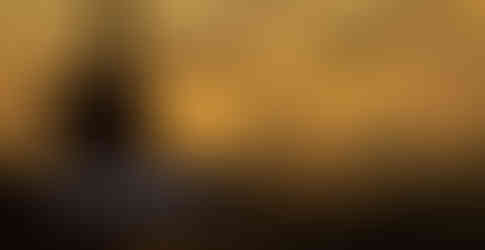







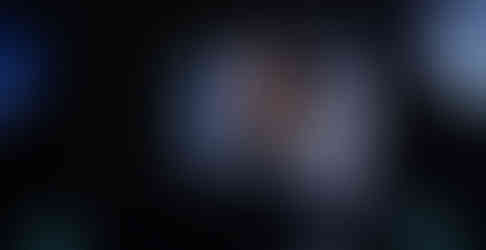































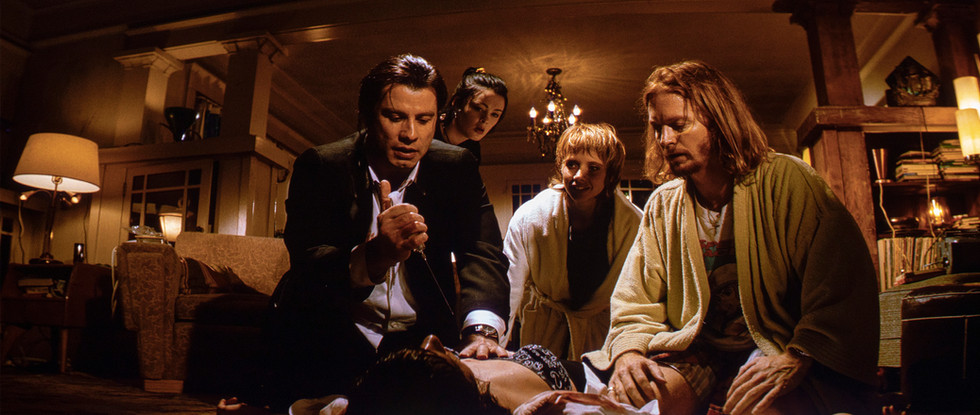



































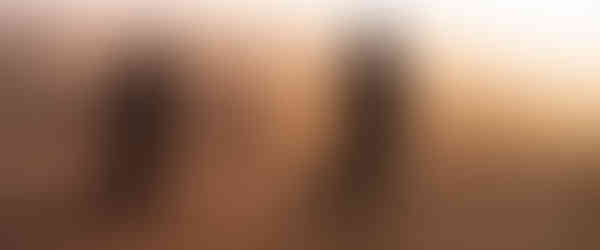



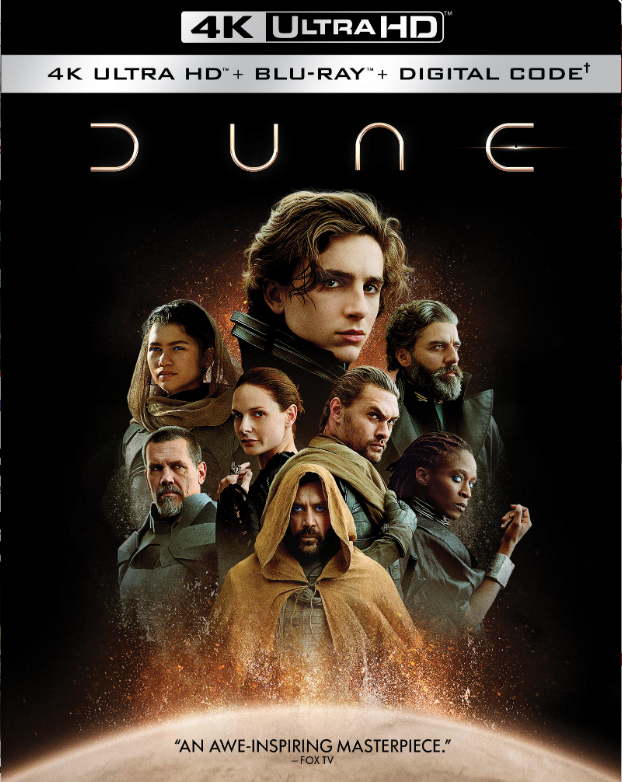

















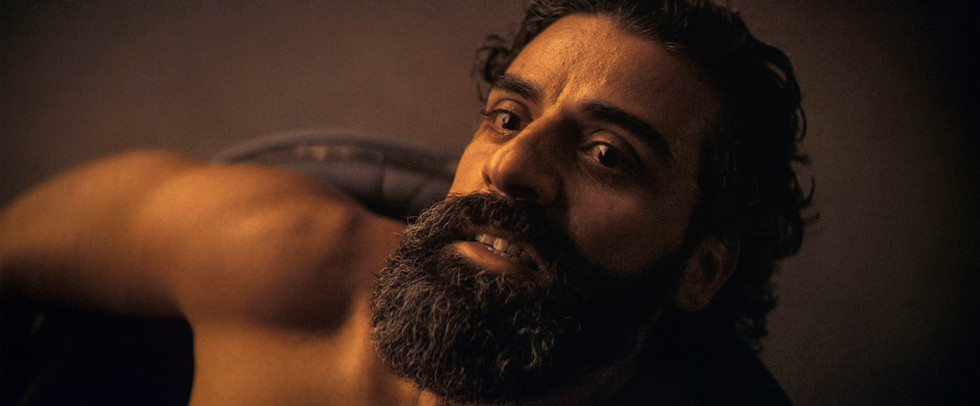








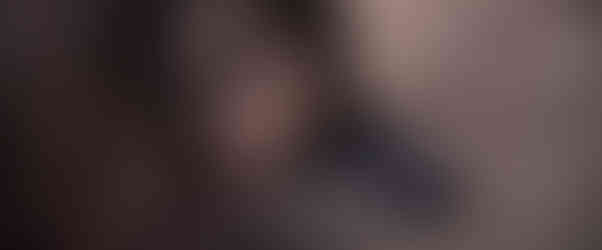






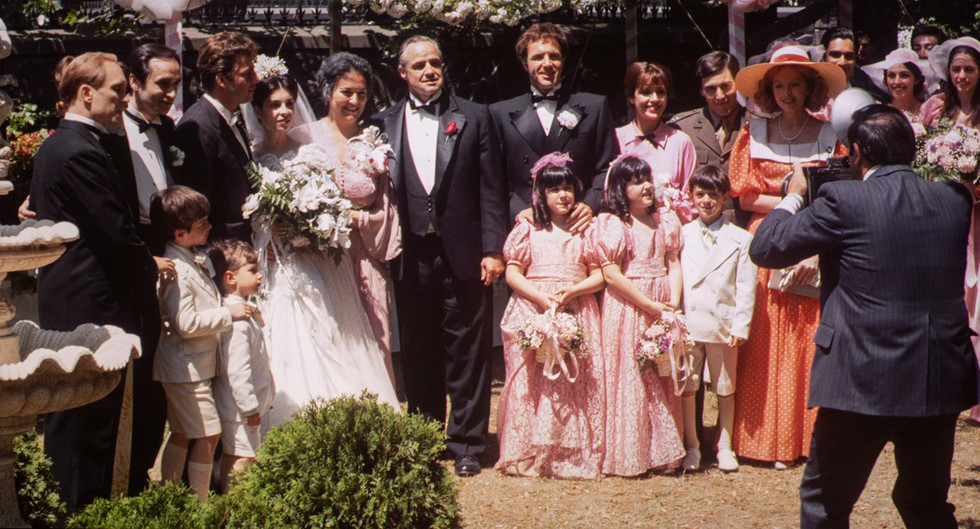

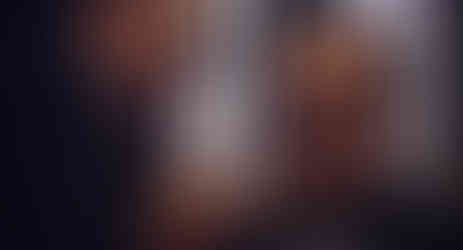




















































































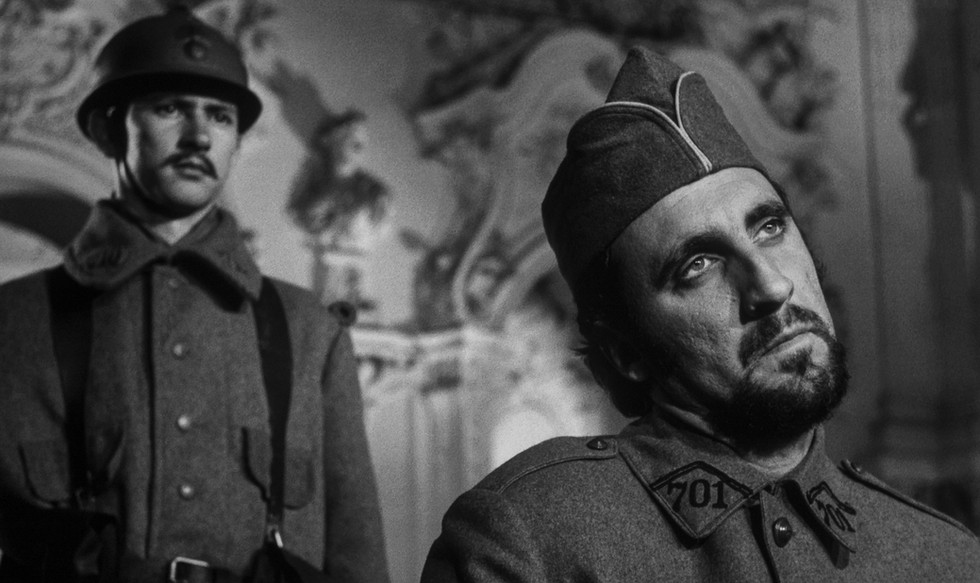








































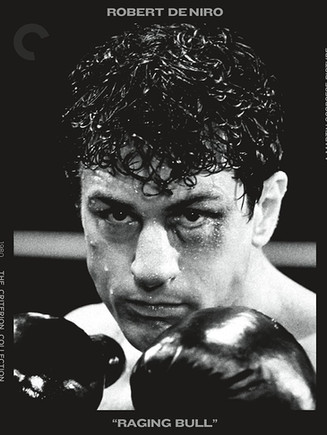













Comments